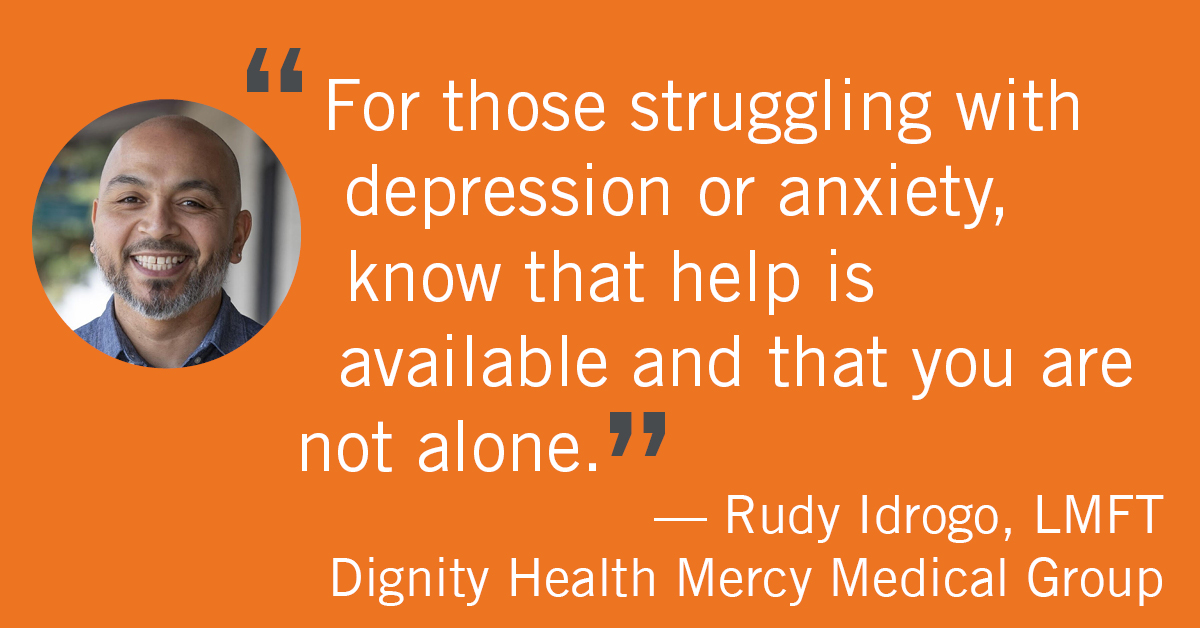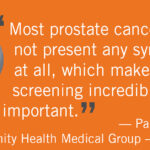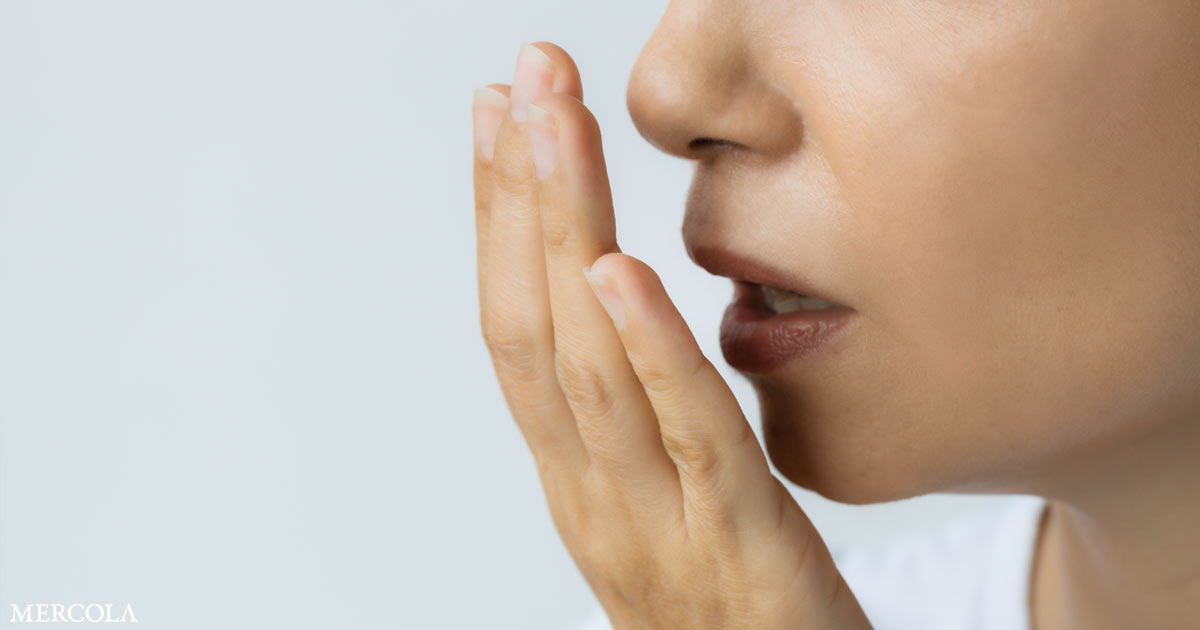
[ad_1]
This June, we’re sharing insights from clinicians across Dignity Health Medical Groups on topics that are crucial to men’s health. Next, is Rudy Idrogo, an LMFT with Dignity Health Mercy Medical Group Behavioral Health.
Rudy discusses what men should know about their own mental health and what they can do to care for their mental well-being.
 Are there symptoms of anxiety or depression that are more prevalent in men than women?
Are there symptoms of anxiety or depression that are more prevalent in men than women?
Rudy Idrogo: People of all genders can experience depression, anxiety, and other mental health conditions, but symptoms can present differently for men. Social expectations, gender roles, and coping styles contribute to these subtle differences.
Men may express their symptoms behaviorally rather than verbally communicating their thoughts, feelings, and emotions. For example, sometimes sadness can be expressed with anger outbursts, irritability, misusing drugs and/or alcohol, risk taking, and escapism.
Some signs of depression and anxiety in men include:
- Mood swings: highs and lows, feeling overwhelmed
- Anger and aggression
- Changes in work performance
- Risk taking behaviors
- Substance abuse
- Weight loss or weight gain
- Feelings of sadness or hopelessness
- Lack of interest in things one used to enjoy
- Difficulty concentrating
- Insomnia or sleeping too much
According to the American Foundation for Suicide Prevention, men are three times more likely to die by suicide than women. Do we have any insight as to why that is?
Rudy Idrogo: Each person’s mental health experiences are different and there is not one singular reason for this statistic. Stress, trauma, substance use, and health conditions can lead to mental health challenges for anyone. Men are less likely to seek mental health services, and seeking help during tumultuous times can help lower the risk of suicide.
If you or someone you know is at immediate risk of self-harm, call 9-1-1 right away and stay with the person until help arrives. You can also get help from a crisis or suicide prevention hotline, like the National Suicide Prevention Lifeline at 800-273-8255.
How can men take care of their mental health?
Rudy Idrogo: For those struggling with depression or anxiety, know that help is available and that you are not alone. Your doctor or therapist is there to help and can discuss treatment options like therapy or medication. Reconnecting with family and friends, getting regular exercise, and showing yourself compassion in a stressful situation are all steps you can take towards improving your mental health.
Reach out to your primary care provider or a mental health professional if you have any concerns about your own mental health or about how to help those around you. 
[ad_2]
Source link





No comment yet, add your voice below!